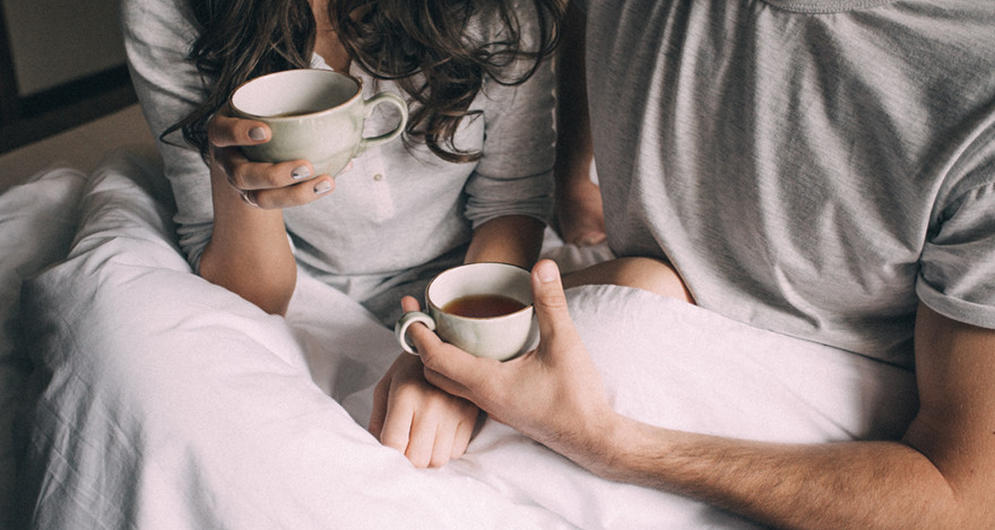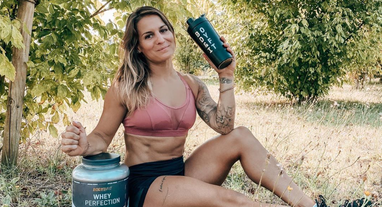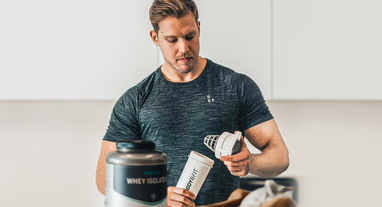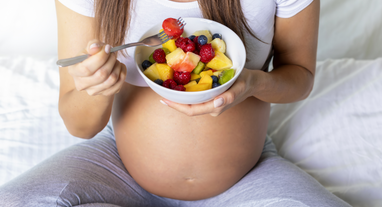Before bedtime

Breakfast is considered the most important meal of the day, because it affects your energy level, body weight and mood, among other things. After all, a good start is half the work. However, the last meals and activities of the day play a major role in the sleep pattern and indirectly also on the above factors. But what are the do's & don'ts right before going to sleep and why?
Negative influence on sleep
Big meals
Food provides calories, or energy. When you consume a large meal just before going to sleep, you provide the body with energy that it cannot get rid of. This may make it more difficult for you to fall asleep, because you get a restless feeling.
Drinking caffeine
Caffeinated drinks such as coffee and energy drinks ensure that your body produces the hormone adrenaline. Adrenaline is known for giving your body energy.
Drinking alcohol
A nightcap, or an alcoholic drink before going to sleep, is often used because it would improve the night's sleep. According to scientists at the University of Michigan, you can fall asleep well after a glass of alcohol. During the first half of the night's sleep, you may be sleeping deeper, however the most important phase in sleep, the REM phase, is continuously interrupted.
Consuming nicotine
Nicotine, like caffeine, is a stimulant. It increases blood pressure and brain activity and accelerates the heart rate. All these effects obviously have an impact on (the quality of) your sleep. In addition, nicotine can lead to an interruption of sleep. This is because nicotine is addictive and your body also needs the supply of nicotine at night.
Positive influence on sleep
Eat a banana, fish or a handful of nuts
Bananas and fish contain tryptophan. The ingestion of tryptophan increases the production of serotonin. Serotonin, the happiness hormone, is converted back into melatonin, a hormone that helps you fall asleep faster and can contribute to inducing sleep. Bananas and fish also contain potassium and magnesium. Magnesium helps release energy from fat, carbohydrates and proteins and plays a role in maintaining lean muscles. Calcium is important for energy metabolism. The above and other important minerals such as zinc , calcium, vitamin B6 and vitamin C can be obtained through nutrition, but also available as a supplement.
More cuddling and skin to skin contact
Cuddling and skin-to-skin contact increases GABA levels. GABA stands for gamma-aminobutyric acid and is a neurotransmitter in the brain. It helps to balance brain function. It also helps to relax and reduce stress and anxiety. Besides cuddling and skin to skin contact, eating potatoes, bananas, leafy vegetables, eggs, onions or seeds can also cause increased GABA levels. Of course GABA is also available as a supplement.
Herbal tea or cherry juice
Herbal tea can reduce stress and give a mental and physical feeling of peace. Examples of herbal teas are chamomile tea, lavender tea, peppermint tea and detox tea. Note that (conventional) tea and tea such as green and black tea often contain caffeine. It is therefore not advisable to drink these teas before going to sleep, for the reasons mentioned above. According to researchers from Northurmbria University, cherry juice increases the amount of melatonin in the body. Unlike alcohol, cherry juice can be used as a nightcap.
Have a casein shake
Athletes in particular have an interest in a sufficient protein inake to promote muscle recovery. Casein protein is a time-released protein, that is, it has a gradual and prolonged release. This way, your muscles are supplied with protein during the night, which can have beneficial effects on muscle recovery and thus the creation of muscle mass. Micellar Casein is therefore extremely suitable to take before going to sleep.




